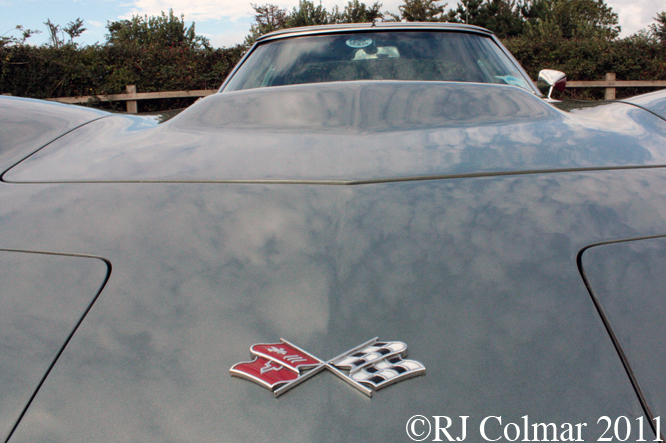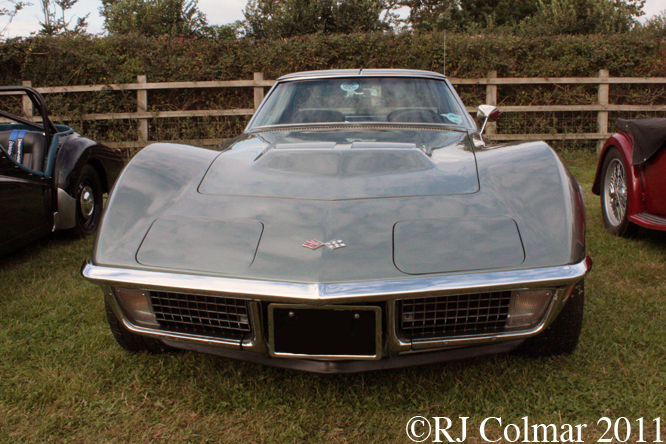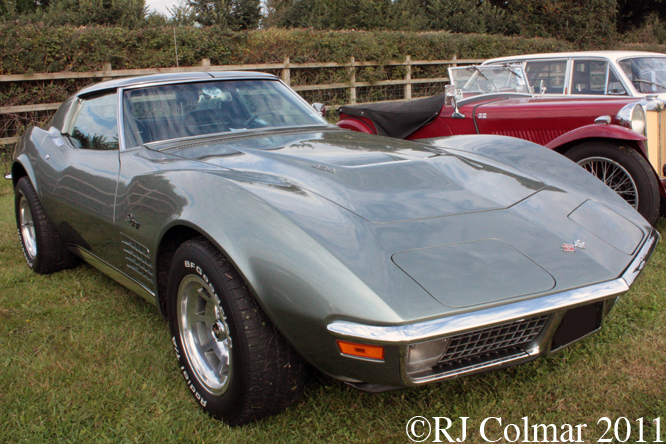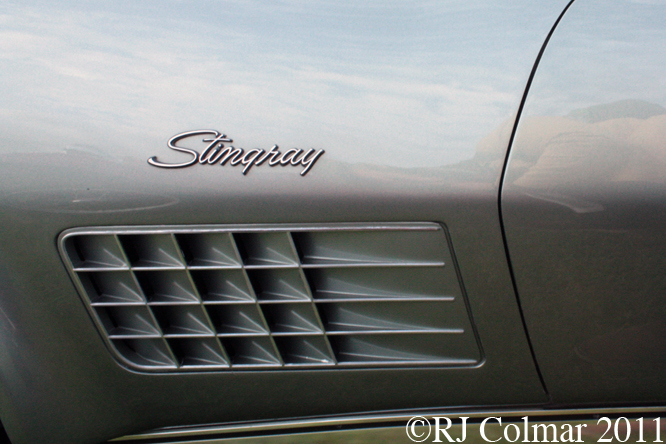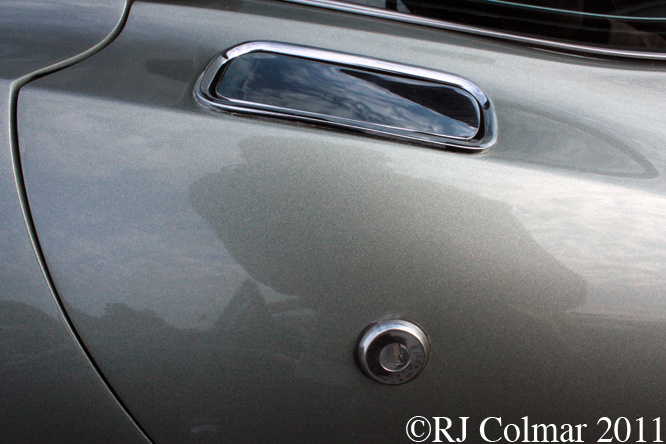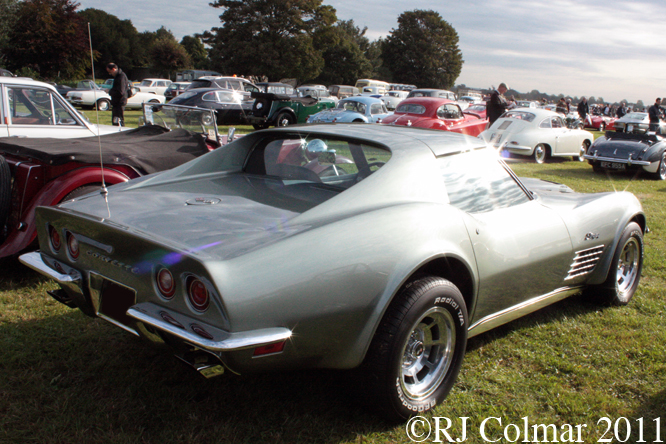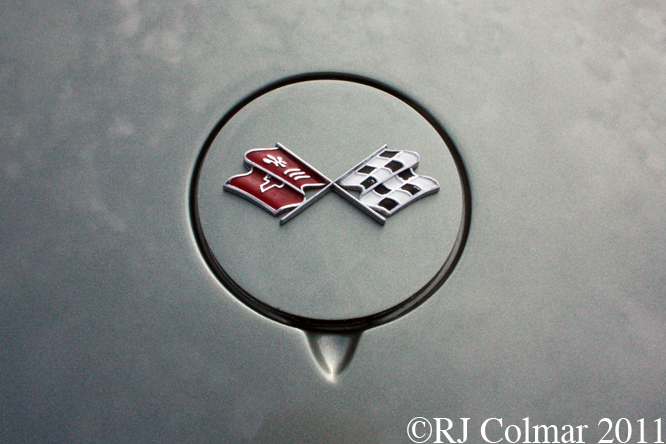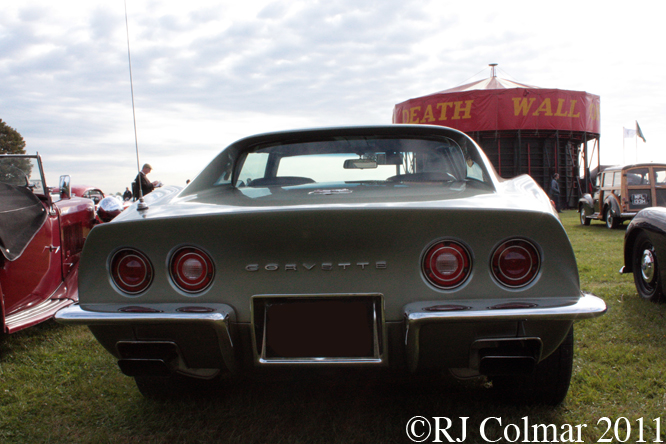Longest running of the Chevrolet Corvette incarnations was the third generation C3 built between 1968 and 1982.
The C3 Corvette took it’s styling cues from the 1965 Mako Shark II Concept Car.
A new feature of the C3 Corvette’s was the T Top removable roof panels, an idea first patented Gordon Buehrig in 1951 for his, unsuccessful, TASCO Sports Car.
The T-Top proved so successful that production of convertible Stingray Corvettes ceased in 1975 and was not revised again until 1986.
For 1971 the engine options were base L48, performance LT1 and ZR1 using the 350 cui 5.7 litre small block and the 454cui / 7.4 litre LS5 and LS6 big block options. With the introduction of low lead fuel in 1971 the LS6 454’s power was detuned from 450 hp as used on the Chevelle SS to 425 hp. I have been unabke to determine if the car in these photo’s taken at last years Goodwood Revival is one of the 188 LS6 powered cars or one of the 5097 365 LS5 powered cars built in 1971.
The absence of “Sting Ray” name plates as used on the C2 Corvettes distinguish 1968 Corvette’s, the single word “Stingray” moniker was used from 1969 until 1976.
The futuristic door entry mechanism replaced with the hitherto ubiquitous release button and door handle combining them into a single recessed unit.
The C3 is said to be the first US car to do away with the side vent window in the door, power window’s were an option for the remaining pain of glass.
Among the 1971 options were white striped tyres at $28 or white lettered tyres at $42, 6,711 and 12,499 vehicles were delivered with these options respectively.
’71 Corvette advertising concluded that “it’s underneath what counts when it comes to performance”.
Despite strikes interrupting production 9,936 Stingray Corvette Coupé’s were manufactured in 1971.
Thanks for joining me on this “Low Lead 454” edition of “Gettin’ a li’l psycho on tyres” I hope you will join me again tomorrow. Don’t forget to come back now !

